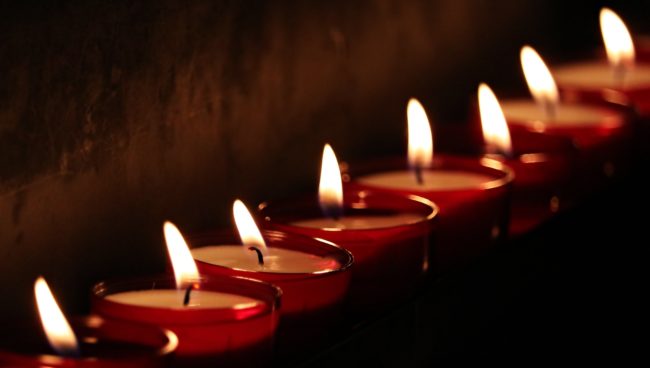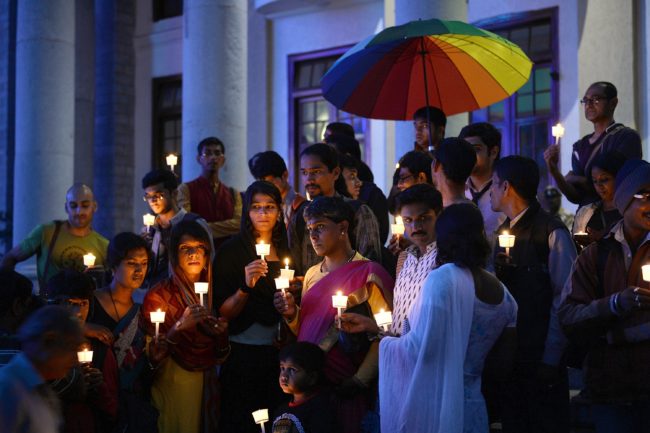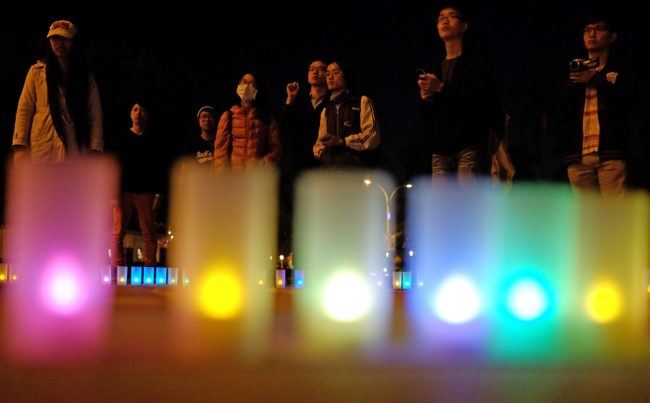Transgender Day of Remembrance: New Report Looks at High Levels of Violence
A new report has shed light on the horrific epidemic of violence against transgender people in the US, ahead of the annual Transgender Day of Remembrance.
The Human Rights Campaign (HRC) Foundation report, released on November 19, looks at the high levels of violence against America’s transgender community, who are disproportionately more likely to face violent attacks than the general population.
The report, titled “Epidemic: Fatal Anti-Transgender Violence in America in 2018,” found that at least 22 transgender people have been murdered in the US so far this year.
The actual number may be higher, as there is no official data collection on crimes against trans people, and monitors frequently have to rely on LGBT+ community sources.
“We must address the root causes of violence to make our communities safer for everyone. It is unacceptable that transgender and gender-expansive people are killed simply because of who they are.”
Human Rights Campaign Foundation
The report included some shocking statistics about the murder victims.
82 percent of the identified victims were transgender women of colour, while 55 percent of the deaths occurred in Southern states.
Research also found that 74 percent of identified transgender murder victims were misgendered (referred to using their birth gender) or deadnamed (referred to using their birth name) in initial police or media reports surrounding their deaths.

Many police forces across the US still insist on using the name or gender listed on the victim’s ID in reports, even when it is several years out of date, while local news organisations are frequently both reliant on official police channels for information, and lacking in expertise on transgender issues.
Experts say the practice can cause significant harm to police investigations during the most critical phase, because people with information may only know the victim by their chosen name, and because misgendering fosters mistrust of police within the transgender community.
HRC calls for action On Transgender Day of Remembrance
The report states that in addition to direct hate-motivated violence, the systemic discrimination faced by transgender people in education, employment and family life can push them into circumstances such as as sex work where they are more likely to face violence.
It notes: “Transgender people face devastating levels of discrimination and harassment in the workplace.
“These barriers are even higher for Black transgender people, who have double the unemployment rate of all transgender people, and four times that of the US general population.
“With limited access to workplaces that are affirming and inclusive, transgender and gender-expansive people are put at greater risk for poverty, homelessness and involvement with criminalised work.
“Together, these factors put transgender people at an increased risk of violence and danger.”
HRC called to address the root causes of violence make communities safer. “It is unacceptable that transgender and gender-expansive people are killed simply because of who they are,” the report stated.
It added: “For far too long in our society, transgender people—and especially transgender women of color—have faced blatant discrimination and severe violence simply for being who they are. In order for this to change, we must all take action to dismantle the barriers that dehumanize, delegitimize and endanger transgender lives.”
What is Transgender Day of Remembrance?
The report comes ahead of the Transgender Day of Remembrance on November 20, an annual day of remembrance for trans murder victims across the world.
The Transgender Day of Remembrance was first held on November 20, 1998, following the murder of Rita Hester, a transgender African-American woman in Massachusetts. Organised by volunteers from the transgender community, it has since grown into an international commemoration.
Vigils are held across the world to mark the day, at events where the full list of victims is read.

A list of transgender murder victims published by the Remembering Our Dead Project includes 310 known victims in the past year.
HRC President Chad Griffin said: “On Transgender Day of Remembrance, we join together to mourn the lives lost to hate and violence this past year and rededicate ourselves to the urgent action that this epidemic requires.
“From anti-trans employment and housing discrimination to systemic racism, we must recognize the intersecting factors that influence, motivate and embolden the violence that plagues so many within the transgender community — particularly Black and Latina transgender women.
Griffin added: “White, cisgender men like me have a unique responsibility to support our transgender siblings in combating this violence, and join fully in the work to achieve equality for every person in the LGBTQ community.”

Jay Brown of HRC Foundation said: “At least 128 transgender people—the vast majority transgender women of colour—have been killed [in the US] in the last five years.
“But most people can’t even name one victim—one human being who left behind family, friends and a future. We must do better.
“Solidarity means showing up, speaking out, saying their names and steadfastly working to change the realities that conspire to put transgender people at risk of violence. We can do better.”